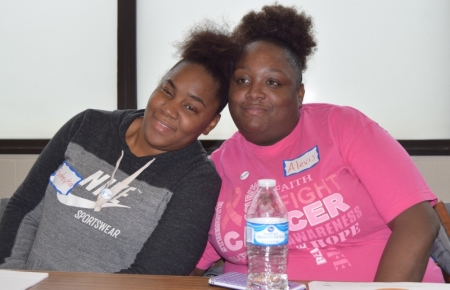As a little girl, my mother and grandmother taught me to treat people how I wanted to be treated. I think most of us have someone special in our lives who taught us that lesson.
As a teacher at Carver Elementary School in Chicago, I try to model that lesson and pass it down to my students. Kindness and empathy are skills to be taught like anything else.
The Teach Kindness program allowed us to focus on an impactful way to show kindness, through a Gratitude Jar. If a student does something nice for someone or someone does something nice for them, we add a note to the jar, hoping to fill it with small acts of kindness.
Even during the pandemic when we couldn’t be together in person, we started each day with a focus on kindness. The students had time and space to talk with each other, act out scenarios to show kindness to others, or talk about kindness in their own lives.
Students felt a sense of community, even online. They felt like they belonged.
Teach Kindness worked then, and it continues to work for us now. It’s become an expectation at Carver, something we’ve all agreed to do. It is a part of our school’s culture. And that kind culture has been honored with the 2020-2021 Kind School Award, a recognition we are so proud to have!
Teach Kindness allowed us to double-down on our school’s dedication to social-emotional learning and our students and staff have benefited from that commitment.
We can all learn something from this commitment to kindness. As we approach the holidays, I hope you have something to add to your own Gratitude Jar.
P.S.: Read more about each of the schools honored with the 2020-2021 Kind Schools award. Teach Kindness is open to all Illinois schools, so any educator looking to learn more should reach out to Brandi Watts at Stand for more information.













